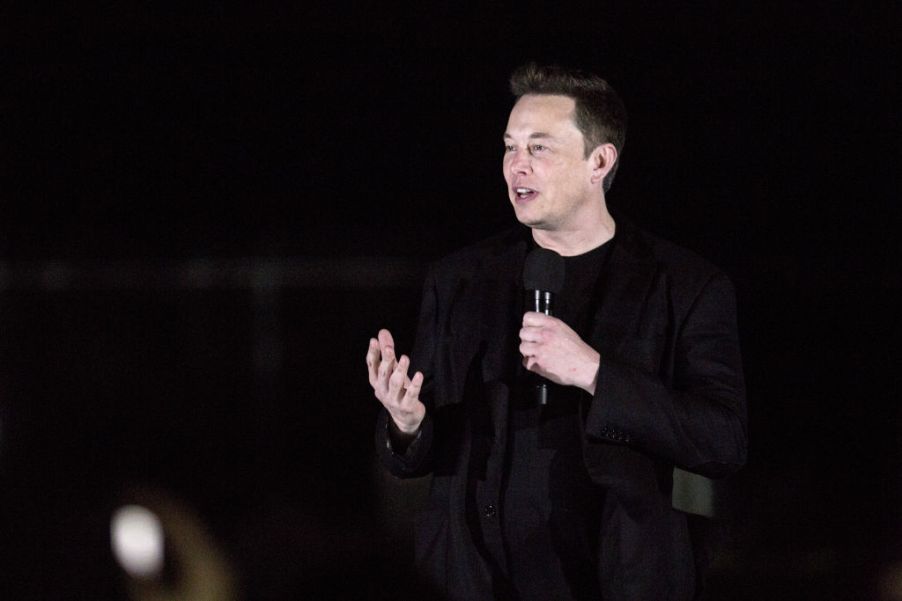
Will Tesla Make an Electric Motorcycle?
Electric motorcycles are still in the infancy phase, but these bikes now a reality. So it seems natural that Tesla, the all-electric car company, would come up with its version of an electric motorcycle. However, if you’ve ever asked the question, “Will Tesla ever make an electric motorcycle?” you may be in for a surprise.
Learn more about why Tesla may never jump in on the electric motorcycle market any time soon, as well as some of the challenges that the motorcycle industry has faced over the past several years.
Tesla CEO says no to electric motorcycles
Tesla CEO Elon Musk recently stated that his company would never set out to build a motorcycle — electric or otherwise. He bases his firm decision on a near-death experience had on a scooter when he was just 17, The Street reports. With the danger facing motorcycles on the road on his mind, the Tesla CEO has declared that his company will not be making electric motorcycles.
Challenges of the motorcycle industry
During the Great Recession, motorcycle sales and manufacturing lagged behind as dispensable household incomes across the U.S. dried up. According to Statista, U.S. motorcycle sales dropped from about 1 million in 2007 to just less than half a million in 2017.
Compare this situation to the one in mid-20th century, when hundreds of millions of motorcycles were being sold and ridden throughout the world, and the motor-club movement captured the American imagination through media and popular culture. In the post-war years, English and American bikes dominated American markets until the 1960s, when Japanese manufacturers such as Yamaha, Kawasaki, and Suzuki arrived on the scene.
Lack of millennial interest
To add to the mix, many millennials, — roughly those between the ages of 27 and 37 — may not have the skills and interest in traditional bikes that baby boomers in the past brought with them to adulthood. Many boomers did more work with their hands and grew up in environments where fixing and riding motorcycles was part of the American tradition.
But this isn’t so much the case with today’s generation, who collectively have less exposure to the American bike culture than their Baby Boomer parents.
Harley-Davidson fills the gap
With Tesla not making plans to make an electric motorcycle, Harley-Davidson went forward with its 2014 prototype for an electric bike. Its July 2019 press release announced that Harley’s LiveWire motorcycle would be coming out in fall 2019 in selected dealerships in the U.S., Canada, and Europe.
Priced at $29,799, the LiveWire has a city range of 146 miles. And because it’s fully electric, new riders aren’t faced with gear shifts or clutching. It has fast acceleration, going from zero to 60 mph in three seconds and 60-80 mph in 1.9 seconds. Lastly, its battery’s DC fast-charge technology allows it to fully charge in 60 minutes.
More electric motorcycles in 2019
Harley-Davidson is not the only company coming out with electric motorcycles. Electrek listed several motorcycles that have made an appearance in 2019: the Super SOCO TC Max, the Fly Free 2019 Smart Desert, and Smart Classic, the 2019 Arc Vector, and the 2019 Zero DS ZF14.4.
So while Tesla stays away from giving the world its version of the electric motorcycle, other companies are stepping in. And although the industry has suffered in the last decade while young millennial college graduates dealt with high student debt and a poor job market, the very nature of electric motorcycles may actually help the industry make a comeback.
In love with all things digital and becoming less familiar with the old school manual mechanics that held Baby Boomer interest and contributed to motorcycle industry’s mid-20th century peak, today’s young bike consumers are looking towards a future in electric bikes with no clutches or gear shifts, wide ranges, and faster acceleration capabilities.


